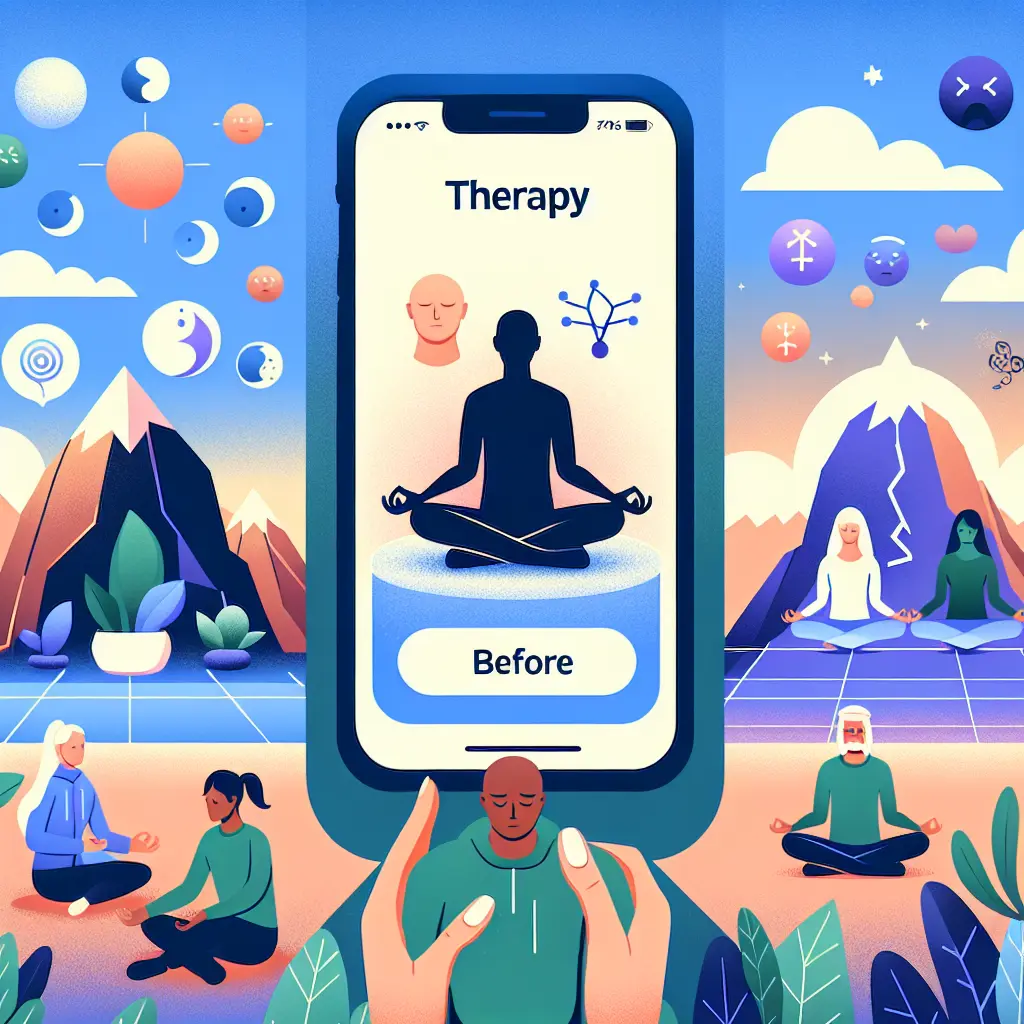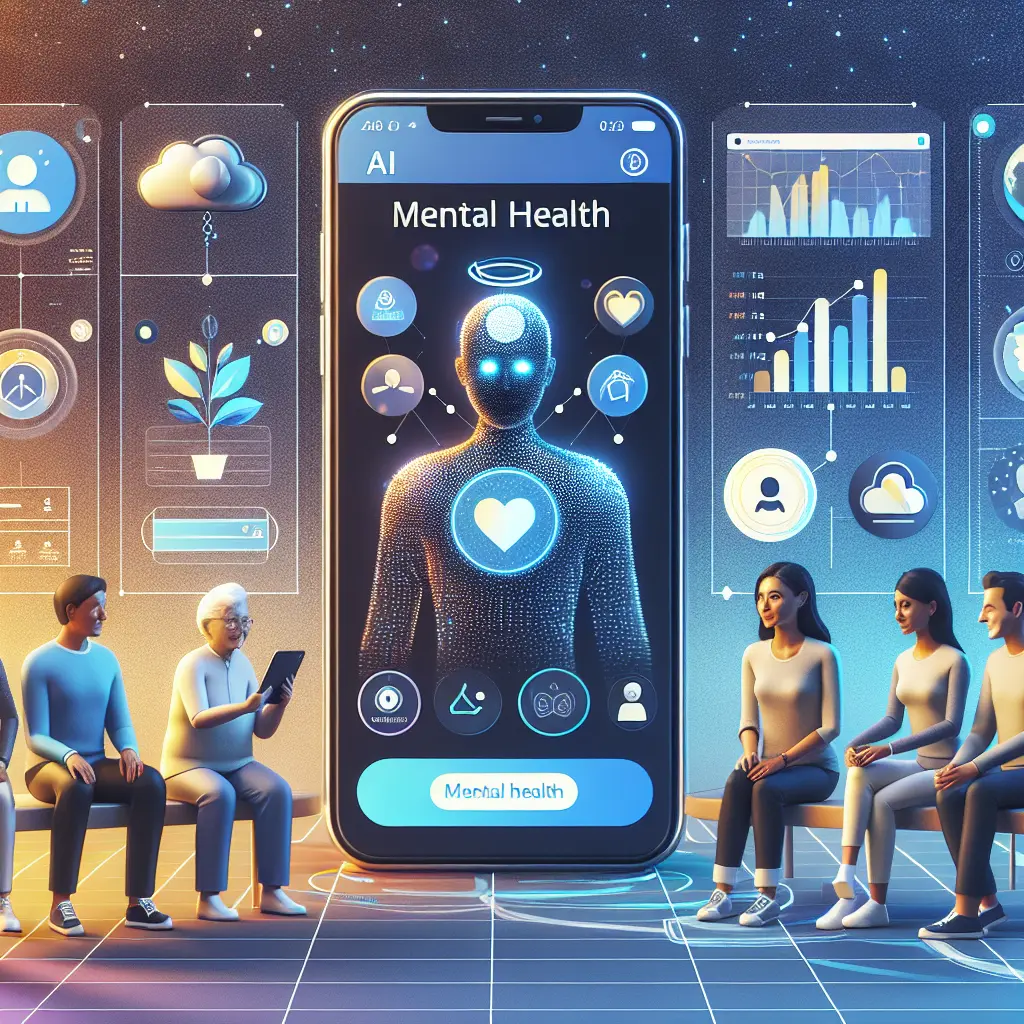In today's fast-paced world, the intersection of sleep and mental health is garnering much-needed attention, thanks to the rise of innovative digital health tools. Mental health apps are not just transforming how we approach mental wellness, but they are also revolutionizing the way we develop healthy sleep habits. These cutting-edge sleep hygiene apps and sleep tracking apps have become essential components in promoting sleep improvement and overall mental well-being. As the business of mental health apps continues to grow, so does the development of sleep disorder apps and digital therapy tools that enhance sleep management.
The benefits of mental health apps extend far beyond individual users, reaching into the corporate wellness programs that prioritize employee mental health tools. By leveraging mental wellness technology, companies can boost productivity and foster a healthier work environment. The innovation in mental health app development underscores a significant shift towards wellness technology that prioritizes both sleep and mental health.
The mental health app market is burgeoning with startups eager to capitalize on this trend, introducing mobile health apps that cater to various aspects of sleep and mental wellness. These digital platforms not only track and improve sleep habits but also offer insights into how sleep impacts mental wellness and productivity. As the demand for these digital solutions grows, so too does the focus on integrating mental wellness apps into everyday life.
As we explore the dynamic world of mental health technology, it becomes clear that these apps are reshaping how we approach sleep management. Let's delve deeper into how these digital innovations are paving the way for a well-rested, mentally robust society.
In recent years, the role of mental health apps in promoting healthy sleep habits has become increasingly significant. These digital health tools are not only enhancing individual sleep management but also impacting broader societal and workplace well-being. This exploration draws upon serialized articles and recent studies to provide a comprehensive look at how mental health apps are transforming sleep hygiene and overall mental wellness.
The Role of Mental Health Apps in Building Healthy Sleep Habits
Mental health apps have evolved significantly, incorporating features that track and improve sleep habits. This integration is a response to the growing awareness of the interconnectedness between sleep and mental health. According to an article from The Times, one effective strategy for improving mental wellness includes using apps that encourage users to log their sleep patterns and reflect on how these patterns affect their mood and productivity.
Sleep tracking apps are particularly innovative in their ability to analyze sleep cycles and provide feedback. For instance, they can detect REM cycles, disturbances, and offer personalized advice to enhance sleep quality. These insights are pivotal in helping users establish healthy sleep routines, which are crucial for mental wellness.
The benefits of mental health apps extend beyond individual users to influence corporate wellness programs. As noted in the Rolling Out article, companies are increasingly incorporating mental wellness technology to support employee mental health. By leveraging digital health tools that focus on both mental health and sleep improvement, employers can foster a more productive and healthier work environment.
These apps also provide digital therapy tools that help manage sleep disorders such as insomnia or sleep apnea, which are often linked with anxiety and stress. The Boarding Area review highlights how wellness technology has been integrated into travel to support better sleep practices even when individuals are away from their regular environments, further illustrating the versatility of these digital solutions.
Innovation in Mental Health Apps
The business of mental health apps is thriving, driven by startups eager to innovate within the mental wellness space. This innovation is critical as it addresses diverse needs ranging from general sleep hygiene to specific sleep disorders. For example, apps now utilize AI to offer tailored recommendations based on user data, enabling more effective sleep management strategies.
A key development in this area is the emergence of mobile health apps that incorporate elements of cognitive behavioral therapy (CBT) for insomnia. These apps guide users through behavioral changes needed to enhance sleep quality, proving particularly effective for those struggling with chronic sleep issues.
The mental health app market continues to grow as more individuals recognize the importance of sleep and mental health. As reported by Wellness Omega, the new year often brings a surge in downloads as users commit to improving their health with digital tools. This trend underscores the increasing reliance on wellness technology for both mental and physical well-being.
Moreover, the integration of these apps into everyday life is facilitated by their accessibility on smartphones, making it easier for users to engage with their mental health proactively. The personalization and convenience offered by these digital platforms make them an attractive option for those seeking to enhance their sleep habits.
Corporate wellness programs are capitalizing on the benefits of mental health apps by offering them as part of employee mental health tools. This approach not only supports individual well-being but also boosts overall productivity within organizations. By providing employees with resources that promote better sleep, companies can reduce burnout and improve job satisfaction.






Leave a Comment